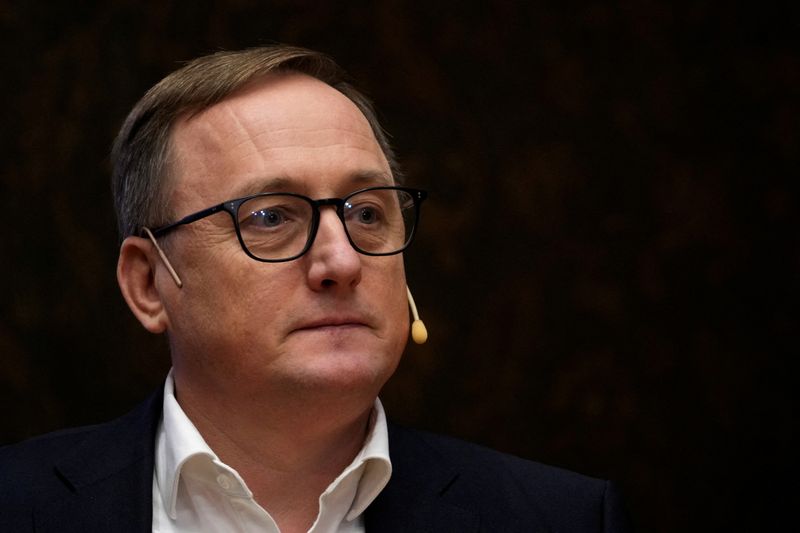WASHINGTON (Reuters) - The European Central Bank may need to ease policy somewhat faster than earlier thought but interest rates do not need to fall to a level where the bank is stimulating economic growth, Latvian central bank chief Martins Kazaks said.
The ECB cut rates three times already this year and some policymakers now argue that the bank could undershoot its 2% inflation target soon, potentially warranting a cut below the neutral rate into a territory where it is once again providing stimulus.
"For rates to go below the neutral, the economic baseline would have to be much weaker and there would have to be a clear prospect for a substantial and permanent undershoot of our target," Kazaks told Reuters on the sidelines of the International Monetary Fund's annual meeting.
"I just don't see that right now, we are not there," he said.
Inflation may be going down somewhat quicker than the bank had forecast in September, but that only brings forward the date when the target is met and does not represent a fundamental change in the profile of price growth, he said.
Growth in wages and services prices remains relatively high and much of the undershoot is due to energy costs, so the ECB also needs to be cautious with policy, he added.
"It's possible we'll get to 2% in a sustainable way a tad sooner," Kazaks said. "And getting to target quicker may mean that the pace of policy easing will need to be somewhat faster than we previously thought."

The ECB last month predicted that inflation would hit its target only in the final quarter of 2025, but some policymakers now think this could be a few quarters earlier.
While some policymakers say this should warrant a debate over a larger, 50 basis point rate cut in December, Kazaks took a more measured view, arguing that a long list of data between now and the Dec. 12 meeting will guide the bank's move.